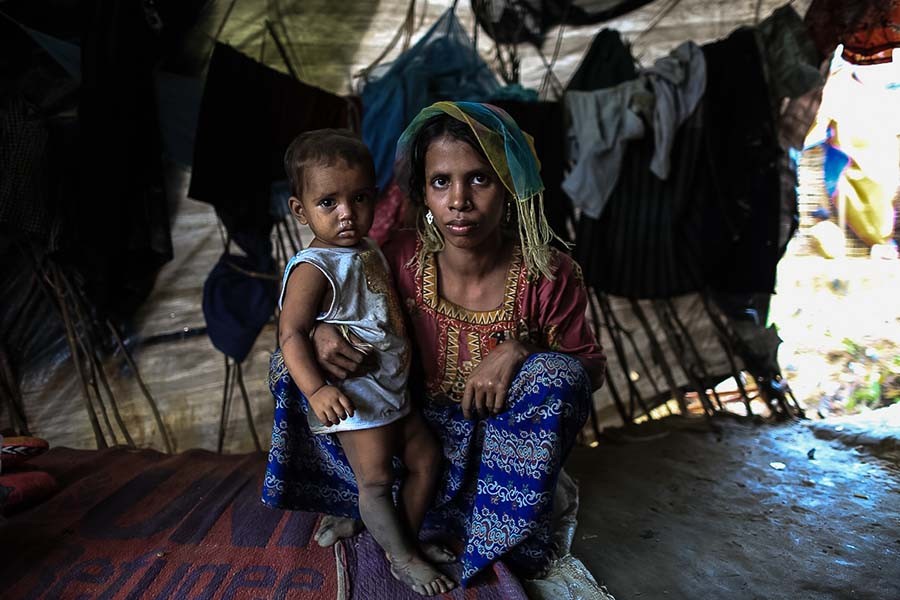More than 48,000 Rohingya babies are expected to be born in Bangladesh this year, warns Save the Children.
Only few of these babies will be born in health facilities, and from day one will be at an increased risk of getting sick, suffering malnutrition and therefore dying before the age of five.
According to the Needs and Population Monitoring Report, approximately 4.9 per cent of the total Rohingya population in Bangladesh (867,673) are pregnant women, or 42,516 women.
It is estimated that 15 per cent will have a miscarriage, meaning there will be an estimated 4,015 live births per month or 48,184 live births in 2018.
UNB says children make up approximately 58 per cent (379,900) of the 655,000 Rohingyas in Bangladesh, according to UNICEF.
"We're expecting about 130 live births per day across 2018. Most babies will likely be born at home in basic tents, in part because of the shortage of quality, 24-hour health facilities able to handle and manage basic emergency obstetrics, as well as challenges accessing health care," Save the Children Health Advisor in Cox's Bazar, Rachael Cummings said.
The official said camps have poor sanitation and are a breeding ground for diseases like diphtheria, measles and cholera, to which newborn babies are particularly vulnerable and this is no place for a child to be born.
"The disadvantage these newborn Rohingya babies will face, by virtue of the situation they are born into, is truly heartbreaking. From the very beginning they will battle odds stacked against them, living in an overcrowded environment where everyone is desperate for help," said Cummings.
Save the Children runs a network of nine community health posts in Cox's Bazar.
Staffed by experienced doctors, nurses and midwives, each facility sees about 70 people a day, many of whom are expectant or new mothers, as well as people presenting with conditions like skin disease, fever and malnutrition.


